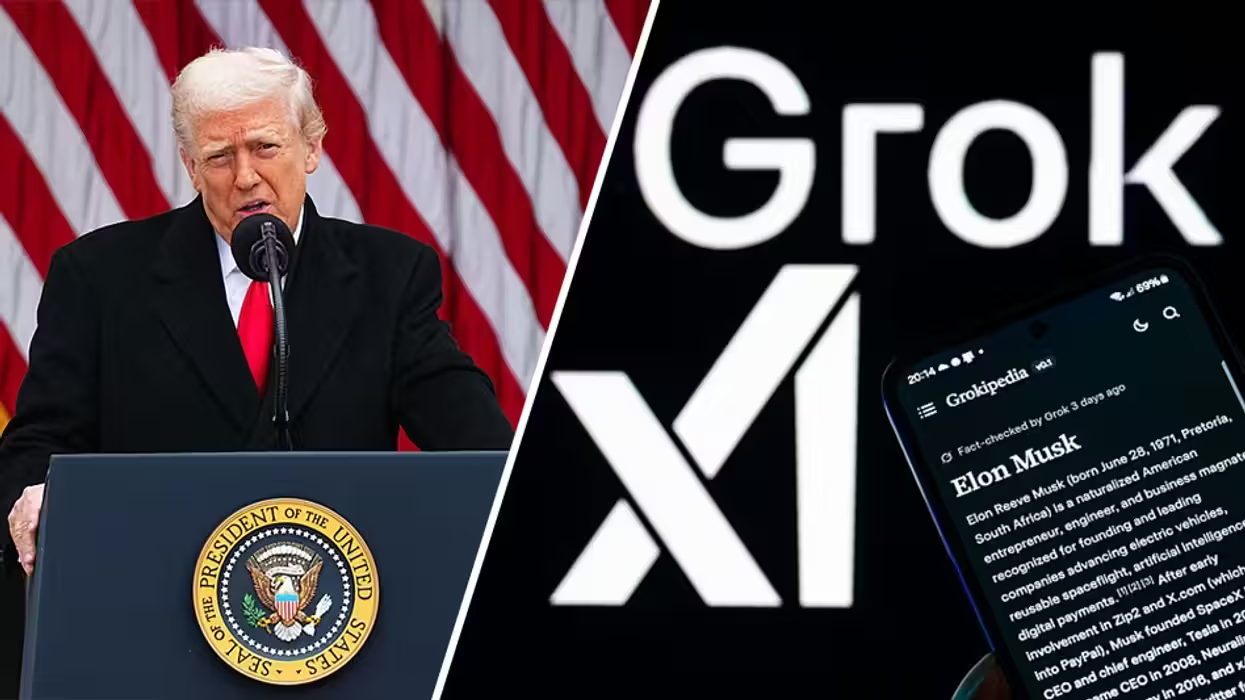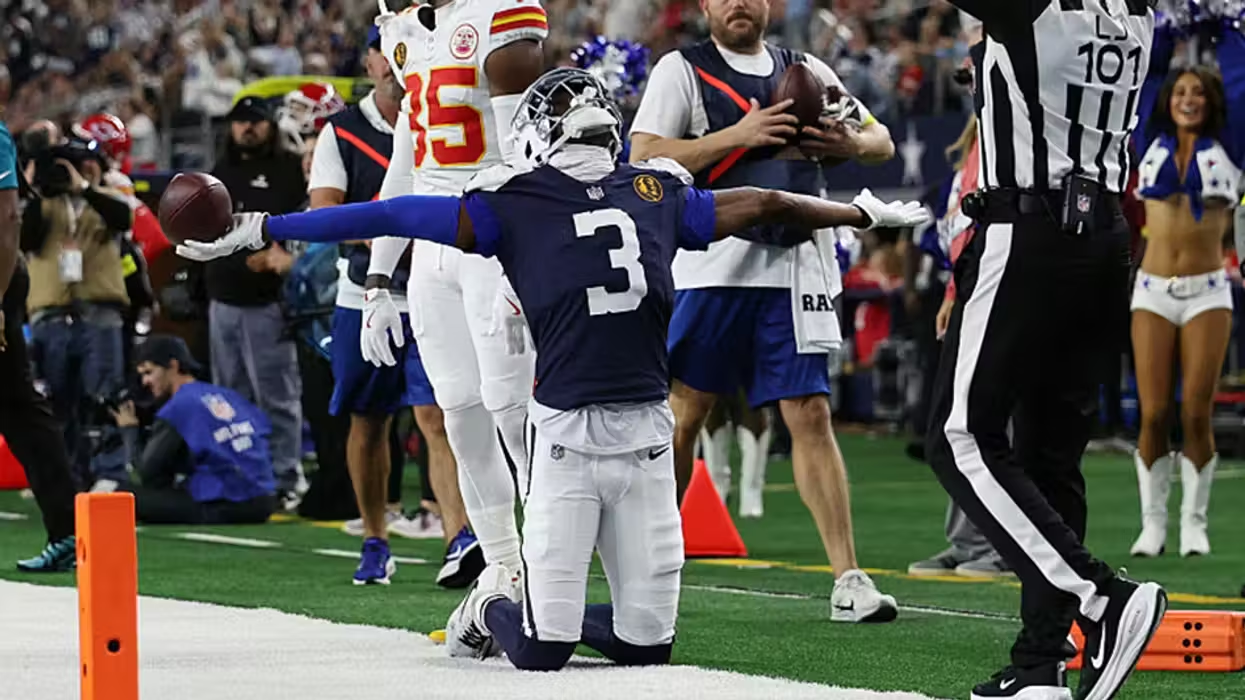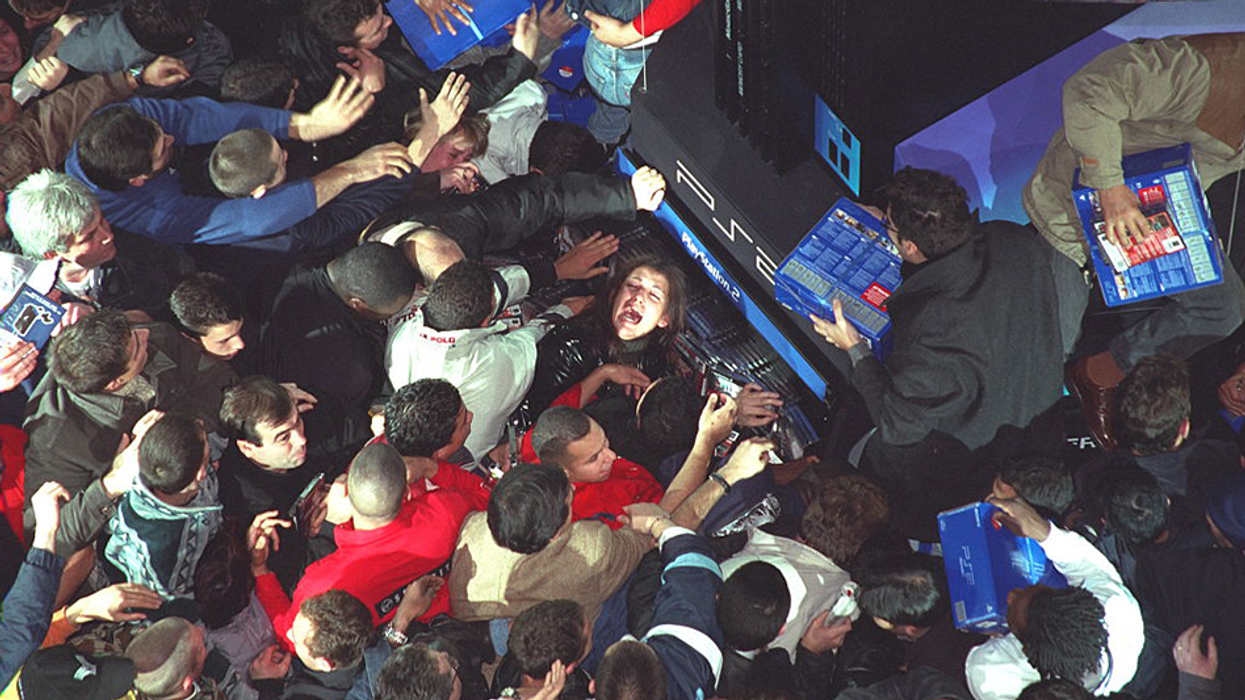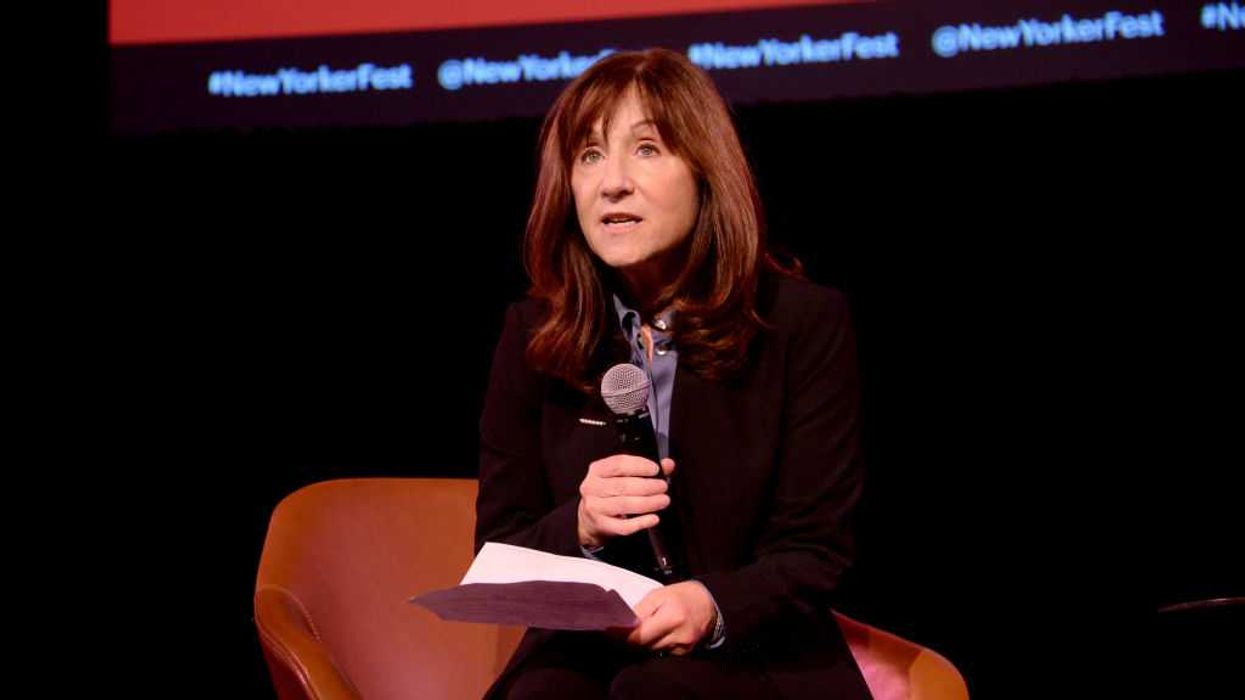
© 2025 Blaze Media LLC. All rights reserved.
"It's sell and ask questions later."
NEW YORK (The Blaze/AP) -- Stocks plunged Wednesday as unrest in Greece threatened to further destabilize global financial markets. Major indexes had their biggest drop since June 1. Below, see a Yahoo! Finance chart of the day's Dow Jones activity:

Investors piled into lower-risk assets like the dollar and U.S. government bonds. Both rose sharply.
If Greece defaults on its debt it could cause investors to dump the bonds of other weak European countries like Portugal, Spain and Ireland, raising borrowing costs for those countries. It could also cause the dollar to further strengthen against the euro, which would hurt U.S. exporters.
June is shaping up to be the worst month for the stock market since May 2010. Stocks have only risen on three days so far this month and have fallen for the other 11. The Dow Jones industrial average and the Standard & Poor's 500 index are now 7.3 percent below their recent highs reached in late April.
"It's sell and ask questions later," said Steven Goldman, chief market strategist at Weeden & Co. in Greenwich, Conn.
A report on manufacturing in the New York area also came in far below forecasts. That reignited fears that factory production, one of the few bright spots in the U.S. economy, may be weaker than many economists had believed.
The Dow Jones industrial average fell 177 points, or 1.5 percent, to 11,899, giving up its 123-point gain from Tuesday. The Dow has only had three days of gains in June.
The Standard & Poor's 500 index fell 22, or 1.7 percent, to 1,266. The Nasdaq composite fell 41, or 1.6 percent, to 2,637.
The technology-heavy Nasdaq index is now down 0.6 percent for the year. The S&P 500 is up less than 1 percent, while the Dow is up about 3 percent.
The euro slid more than 1 percent against the dollar as the worsening Greek debt crisis undermined confidence in Europe's shared currency. U.S. government bond prices climbed as investors sought out safer assets.
Earlier today, The Blaze reported that thousands of people gathered on the streets of Athens to protest government cutbacks required to avoid a default on the government's debt. Demonstrators hurled rocks at riot police, who responded with tear gas. Greece's prime minister said he would reshuffle his Cabinet and seek a vote of confidence after coalition talks with opposition parties failed.
In the latest sign of how Greece's problems could affect other countries, credit ratings agency Moody's said it may downgrade its ratings of France's three largest banks because of their exposure to Greek debt.
Worries about Greece have contributed to a drop in U.S. stocks since late April. If Greece defaults on its debt, it would cause borrowing costs for other debt-ridden European countries like Spain and Portugal to soar as investors shun their debt. That could slow economic growth across the continent and throughout the rest of the world.
A Greek default would further weaken the euro and that could also put pressure on U.S. companies that do much of their business overseas. U.S. corporations have benefited from a weak dollar, which has made their exports more competitive in global markets.
Greece's fiscal problems appeared to be solved a year ago with a package of emergency loans, but it became clear this spring that the country would need more help from its European neighbors to avoid a default. On Monday, Standard & Poor's slashed Greece's creditworthiness to the bottom of the 131 countries that have ratings.
The yield on the 10-year Treasury note, which moves opposite its price, fell to 2.97 percent from 3.10 percent late Tuesday. That signaled a greater demand for low-risk investments. The euro weakened to $1.42 against the dollar from $1.44 late Tuesday, the weakest level for the European currency since May 30.
Oil fell to $95.36 a barrel from $99.37 Tuesday. Oil and other commodities are priced in dollars. So a stronger dollar makes them more expensive for buyers who use other currencies. The drop in oil prices pushed energy stocks down even more than the overall market. Energy stocks fell 2.4 percent, the most of the 10 company groups that make up the S&P 500.
The June Empire State Manufacturing Survey came in well below forecasts. The survey from the New York Federal Reserve found that conditions for New York manufacturers are weakening and new orders are falling. A measure of optimism among factory owners in the state fell to its lowest level since early 2009.
Analysts said investors should expect stock trading to be volatile as uncertainty about the economy persists. The housing market remains weak and the jobs market is sluggish. Questions loom about whether lawmakers will support raising the nation's borrowing limit by an Aug. 2 deadline. The Federal Reserve's $600 billion bond-buying program is also winding down at the end of June. The program was designed to keep interest rates low to encourage borrowing.
"The markets are nervous, investors are nervous, and so we expect volatility," said Oliver Pursche, president of Gary Goldberg Financial Services.
The Dow is down 5 percent this month, while the S&P and Nasdaq are both down 6 percent.
Pandora Media Inc. jumped 14 percent to $20.21 on its first day of trading. The Internet radio company priced its initial public offering at $16 a share, the high end of its range, reflecting hot demand for online companies. Professional networking site LinkedIn soared on its first day of trading last month, but has since fallen 19 percent.
Owens-Illinois Inc. fell 11 percent after the glass container company cut its second-quarter earnings outlook because it is facing higher manufacturing and delivery costs.
Want to leave a tip?
We answer to you. Help keep our content free of advertisers and big tech censorship by leaving a tip today.
Want to join the conversation?
Already a subscriber?
Billy Hallowell is a digital TV host and interviewer for Faithwire and CBN News and the co-host of CBN’s "Quick Start Podcast."
Billy Hallowell
Billy Hallowell is a digital TV host and interviewer for Faithwire and CBN News and the co-host of CBN’s "Quick Start Podcast."
more stories
Sign up for the Blaze newsletter
By signing up, you agree to our Privacy Policy and Terms of Use, and agree to receive content that may sometimes include advertisements. You may opt out at any time.
Related Content
© 2025 Blaze Media LLC. All rights reserved.
Get the stories that matter most delivered directly to your inbox.
By signing up, you agree to our Privacy Policy and Terms of Use, and agree to receive content that may sometimes include advertisements. You may opt out at any time.





